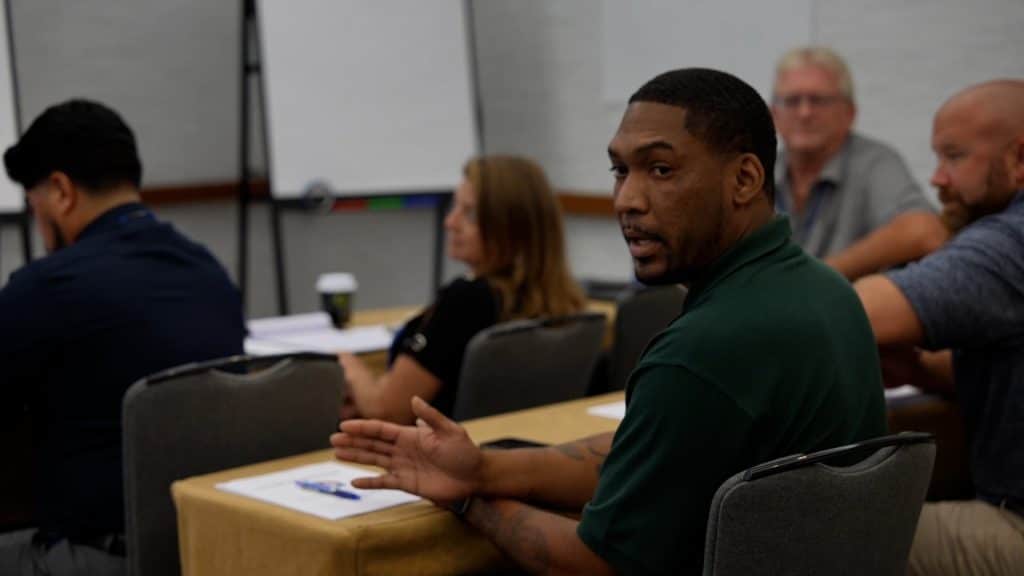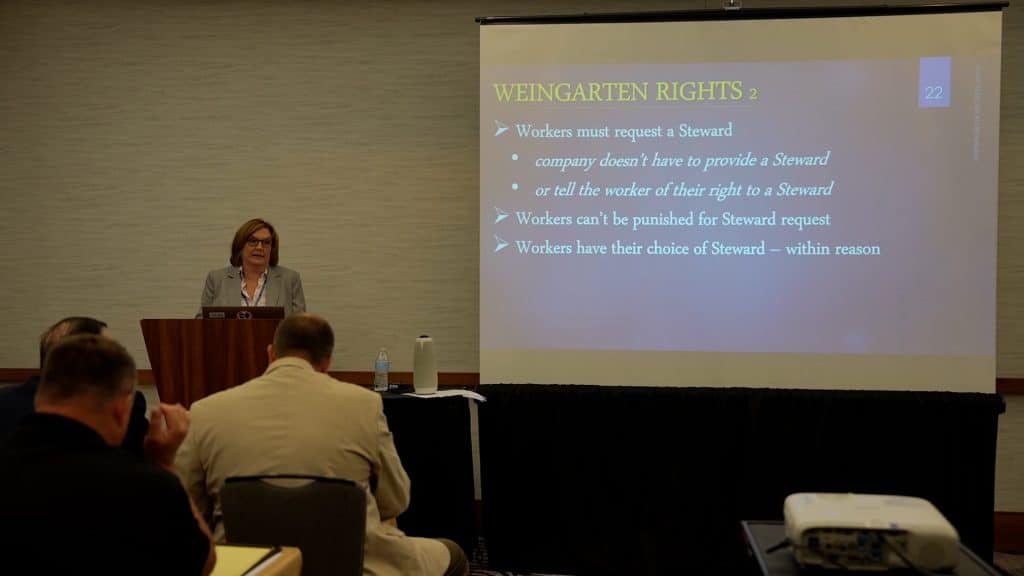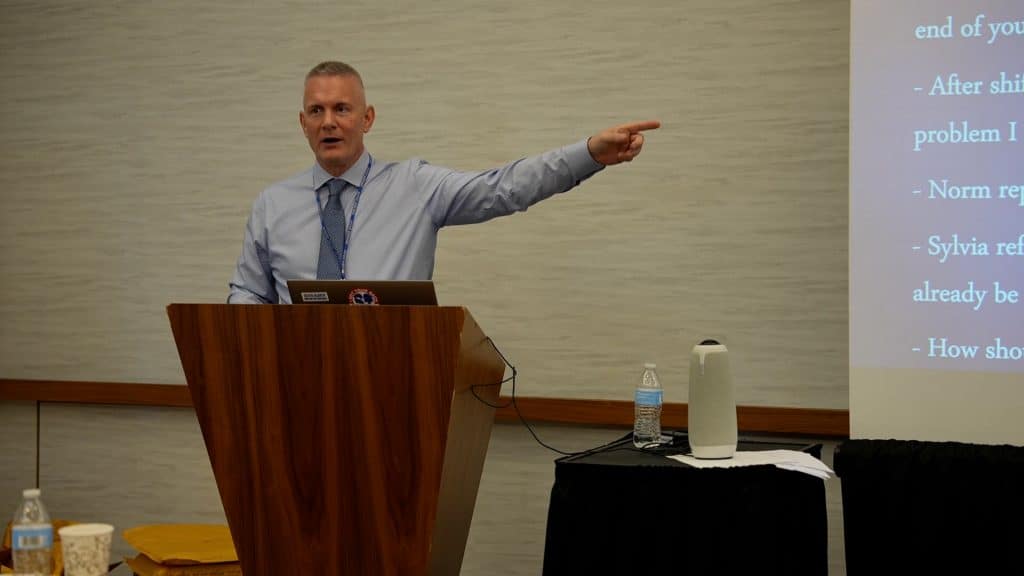
SMART Production Department leaders from across the United States and Canada met in Indianapolis at the end of August for the first-ever Production Institute training. The week-long class, part of a three-year program tailored to production locals, featured sessions on bargaining, labor law, grievance handling, labor history and more — all geared towards helping local union leaders become the best advocates they can be for SMART members.
“The class is really an orientation to why we do what we do, and why they do what they do, and how it fits into this larger picture,” said SMART Director of Education Sam White. “[For example], production leaders need specific types of grievance handling or steward training for the kind of representation work that they do.”
“Things work differently in production shops,” added SMART International Organizer Sharon Walker. “Each one of our production shops has a separate contract, unlike the building trades side, where you might have one contract in the entire local. We file grievances more than they do — it’s just a totally different world.”
A key goal of the Production Institute training was to bring leaders from disparate areas and contexts into the same room, demonstrating both commonalities and differences — and illustrating lessons that can be learned from one another.
“What we’re finding out is that a lot of us are dealing with the same issues in different places, but we also are finding out that some of our situations are isolated based on area, demographics or the workforce as a whole,” said Local 85 (Atlanta, Georgia) Business Agent Schuyler Worthey.
One example: Local unions in states and provinces that are relatively labor-friendly can go on offense, organizing new shops in order to strengthen our union. But for locals in right-to-work states, explained Local 110 (Louisville, Kentucky) Organizer and Recording Secretary Jeremy Waugh, the calculus changes.
“We need to internally organize our production shops so that we can retain the membership and get people to sign up,” he said.


While the differences between locals, areas and countries are important and noteworthy, White said, the training also focused on local unions’ role in the shared history of the labor movement. We can learn from the victories and setbacks of the past — and take comfort in the fact that we are all part of a long struggle for workers’ rights.
Production leaders left the training ready to continue that movement.
“There’s an old adage about taking time to sit down once in awhile and sharpen your axe to be effective, and I think that’s what we’re doing: We’re honing our skills, and we’re going to bring that back to our home locals and really put them into action,” said Local 30 (Toronto, Ontario) Business Representative Joseph Popadynetz. “When you put all those leaders in the same room and you start to share ideas and stories, that’s a bonus effect. It’s just incredible.”
Related News
- Special Focus: SMART sisters bring the noise to Washington, DC
- Seizing the moment for our families
- Building a labor movement that secures our future
- Forging the future
- Local 20 hosts Transportation Secretary Buttigieg, Congressman Andre Carson, AFL-CIO President Liz Shuler
- Federal legislation, investments in manufacturing spur North American megaprojects